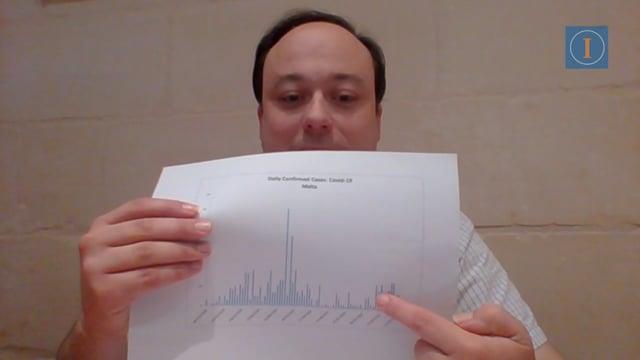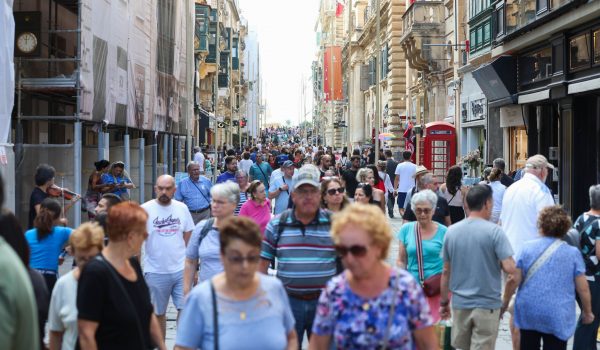
The weekly number of new cases of COVID-19 in Malta was at its lowest last week since the pandemic hit Malta, statistician Vincent Marmara explained to The Malta Independent on Sunday.
In his exclusive weekly vlog, Marmara said that the decrease also meant that even the percentage of new cases against how many swab tests were carried out was the lowest since the first case was found on 7 March – almost three months ago.
Only 0.2% of swab tests carried out over the past week resulted in positive cases, Marmara noted. This compares favourably with the previous week – where the number stood at 0.7% and represented something of an increase over the weeks prior.
As of Saturday, Malta had registered 618 cases of the virus. 525 of those have recovered, while 9 have passed away – leaving 84 currently active cases.
Out of those 618 cases, however, only 18 were found in the last eight days, with half of those being found on 23 May. Last week saw two days where no news cases of the virus were found.
These numbers follow something of a spike in cases which occurred between 14 May and 21 May, when a total of 81 new cases were found – sparking fears of a second wave of the virus hitting Malta just as restrictions started to be relaxed.
Marmara notes an interesting pattern comparing the previous weeks with those when Malta hit its first-wave peak. After hitting a peak in the number of new cases in the first and second week of April, the numbers declined suddenly – a pattern which Marmara noted has been reflected in the past couple of weeks, when a second – much smaller – peak was hit and then subsequently followed by a sudden decline again.
With the case numbers declining, Marmara said that there is no doubt whatsoever that the reproduction ratio of the virus is lower than 1.
Turning to other countries, Marmara noted the similarities between countries such as Spain, Italy, and the United Kingdom – where a long peak was reached and was then followed by a slow decline. The difference here is that the number of cases being found in the UK is still higher than in Spain and Italy.
In South Korea meanwhile, which has proven itself to be the closest comparison to Malta, there was a peak which was followed by a sudden decline and a consistently low number of new cases until recent days, when there was a small increase in cases registered.
Marmara noted that this later point is an important one; “it is normal to see an increase in cases; it depends on the country’s restrictions and people’s behaviour,” he said.
He stated that one can start to return to a certain level of normality even while a small number of cases are still being found, but noted that this has to be done with care so as not to spread the virus further.
By diligently and responsibly following the guidelines issued by health authorities, such as those guidelines on protective wear and social distancing, then the people themselves can guarantee a return to certain activities which were stopped because of the pandemic, he concluded.
Source: Malta Independent



